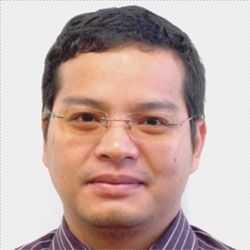Mongolia
The Context
Mongolia is located in the heart of Central Asia, sandwiched between the People’s Republic of China and the Russian Federation. Agriculture accounts for approximately 15 per cent of GDP and produces much of the population's food supply.
Over the last decade, Mongolia’s economy grew at an average rate of 9 per cent, one of the highest in the world, fuelled by the mining sector. However, excessive dependence on mining exposes the economy to global price fluctuations. Annual GDP growth in the country fell sharply in 2015, to 2.3 per cent, from 7.9 per cent in 2014 and 17.3 per cent in 2011. This was mainly due to falling mining production and a decline in foreign direct investment.
Although the country’s strong economic progress has lifted many people out of poverty, one in five people still live below the national poverty line. Poverty is much higher in rural areas (35.5 per cent) than urban areas (23.2 per cent). Rural poor people are either herders, who are scattered, isolated and mobile, or entrenched in rural district settlements called soums, made up of a few hundred families.
Basic infrastructure, such as social services and roads, is very poor due to Mongolia’s difficult terrain and high construction costs, coupled with lack of funds. This makes life difficult for isolated rural people, who have limited access to markets, inadequate education and health care, and few opportunities to earn income.
Many herder households live in precarious circumstances on the ranges or in bag (sub-districts), where opportunities for livelihoods apart from herding are almost non-existent.
The Strategy
Since 1996, IFAD has helped rural poor people in Mongolia by funding development projects in the agriculture and livestock sector, sustainable pastureland management and climate change adaptation.
Our strategy focuses on helping poor herders take full advantage of the market-oriented economy and increase their resilience to climate change and risks. It also emphasizes support for activities that generate cash income for rural poor people, particularly women. IFAD supports technical services, participatory pastureland management, climate change adaptation and rural finance services.
IFAD projects have introduced various financing schemes to help rural poor people earn incomes. Emerging businesses, small enterprises and cooperatives receive lines of credit through IFAD’s support to the Ministry of Finance and partnering financial institutions.
Loans for rural activities are extended to poor and small entrepreneurs as well as project-supported groups through a loan guarantee facility. Revolving funds are also established to finance purchase of equipment for groups supported by IFAD projects.
Country Facts
The poverty rate is higher in rural areas (35.5 per cent) than in urban areas (23.2 per cent), as of 2012.
The livestock sector is key to the livelihoods of rural people in Mongolia, contributing to about 90 per cent of agricultural production.
Since 1996, IFAD has invested US$40.4 million to finance 3 livestock-related projects and programmes in Mongolia, benefiting 89,740 households.
